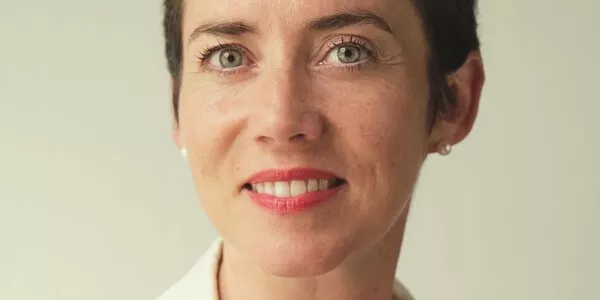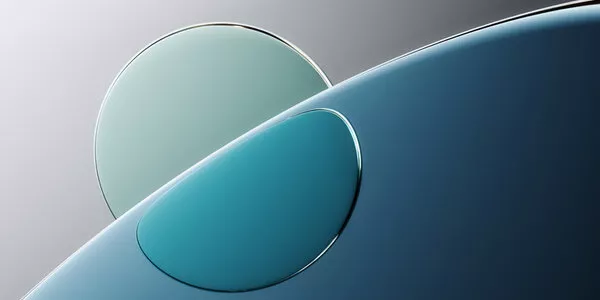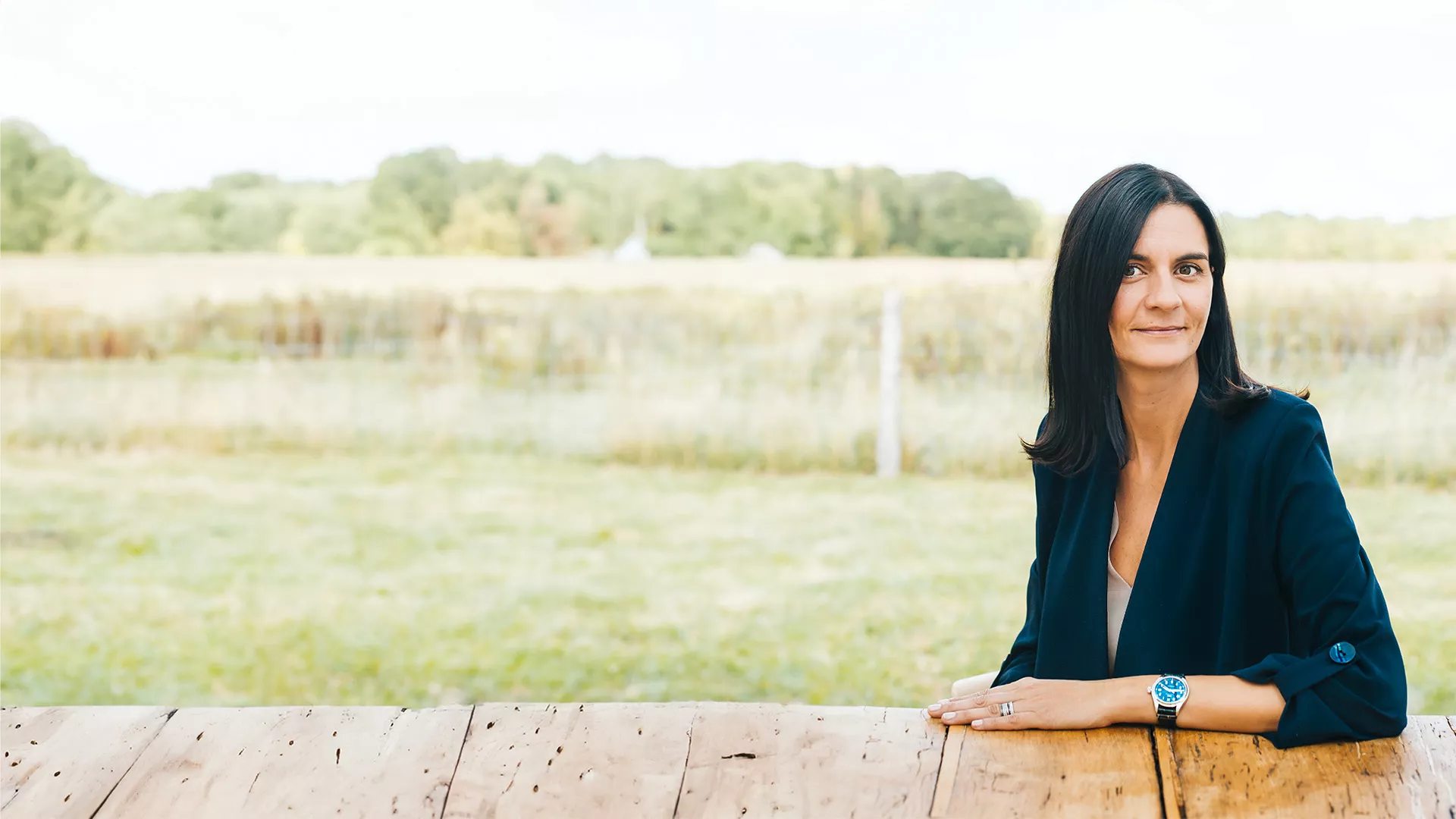
Audrey Bourolleau is reinventing agriculture
With her HECTAR campus, Audrey Bourolleau is now offering the French agricultural sector concrete, disruptive solutions to make it fairer, more sustainable and more economically viable. A determined entrepreneur who intends to reconcile younger generations with the agricultural world.
While the main-stream media repeats the messaging that farmers are at an impasse, exhausted and struggling to survive on their income, Audrey Bourolleau is presenting us with a completely different picture, in which agricultural business leaders are fully capable of creating value, having a better quality of life and developing sustainable models for the planet. This exciting vision is based more on her professional development than on her origins, in spite of the fact she is the granddaughter of farmer. Aft er having cut her teeth internationally at BIC, Audrey worked for nearly fift een years on what she calls “feeling products”, within French viticulture.
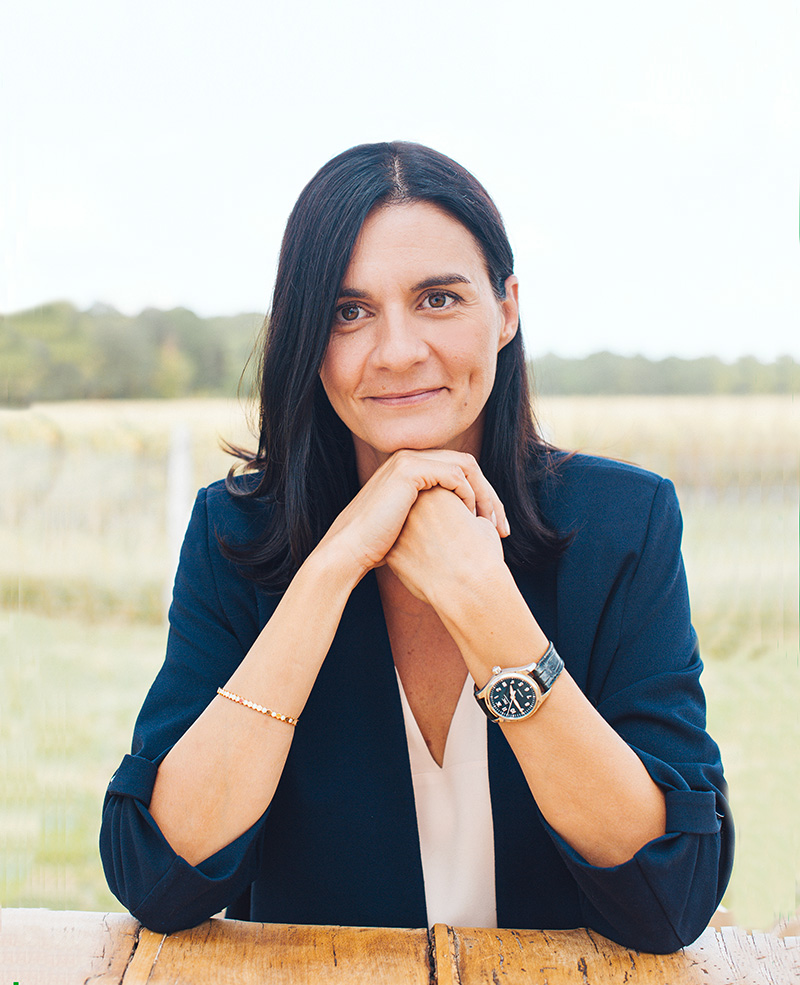
A green university
HECTAR is a unique agricultural campus on the outskirts of Paris that brings together agriculture, entrepreneurship and new technologies. HECTAR’s programmes are aimed both at future farmers with innovative agricultural projects and at established farmers wishing to develop their practices.
2
years old.
1,000
young people trained in 2023.
80
start-ups supported.
1
pilot farm of 300 hectares.
60
cows fed exclusively on grass, whose milk is used to make net-zero carbon emission yogurt.
Aware of the importance of public leverage to create change, she joined Emmanuel Macron’s campaign team in 2016 as a spokesperson on agricultural issues, before becoming his adviser for agriculture, fishing, forest and rural development. In 2019, caught up in her desire to “do things”, Audrey Bourolleau left politics and joined forces with Xavier Niel to create HECTAR, an agricultural campus intended to train future agricultural business leaders.
Meeting unprecedented challenges
When Audrey Bourolleau welcomes you to the HECTAR campus a few kilometres from Paris, you are immediately struck by her energy and vision, a prerequisite for the necessary transformation of French agriculture, given the urgency and scale of the challenges facing the sector. Firstly, there is the unprecedented challenge of cross-generational renewal, given that 160,000 farms (out of 400,000) are scheduled to be passed down to the next generation in France within four years. Secondly, another challenge lies in preserving French agricultural soils, in a context where 25% of them are suffering from erosion and environmental degradation. To improve soil health, Audrey is focussing upon regenerative or conservation agriculture. “We created HECTAR to enable future agricultural business leaders to work according to models that are economically viable, socially just and sustainable for the planet,” she explains.
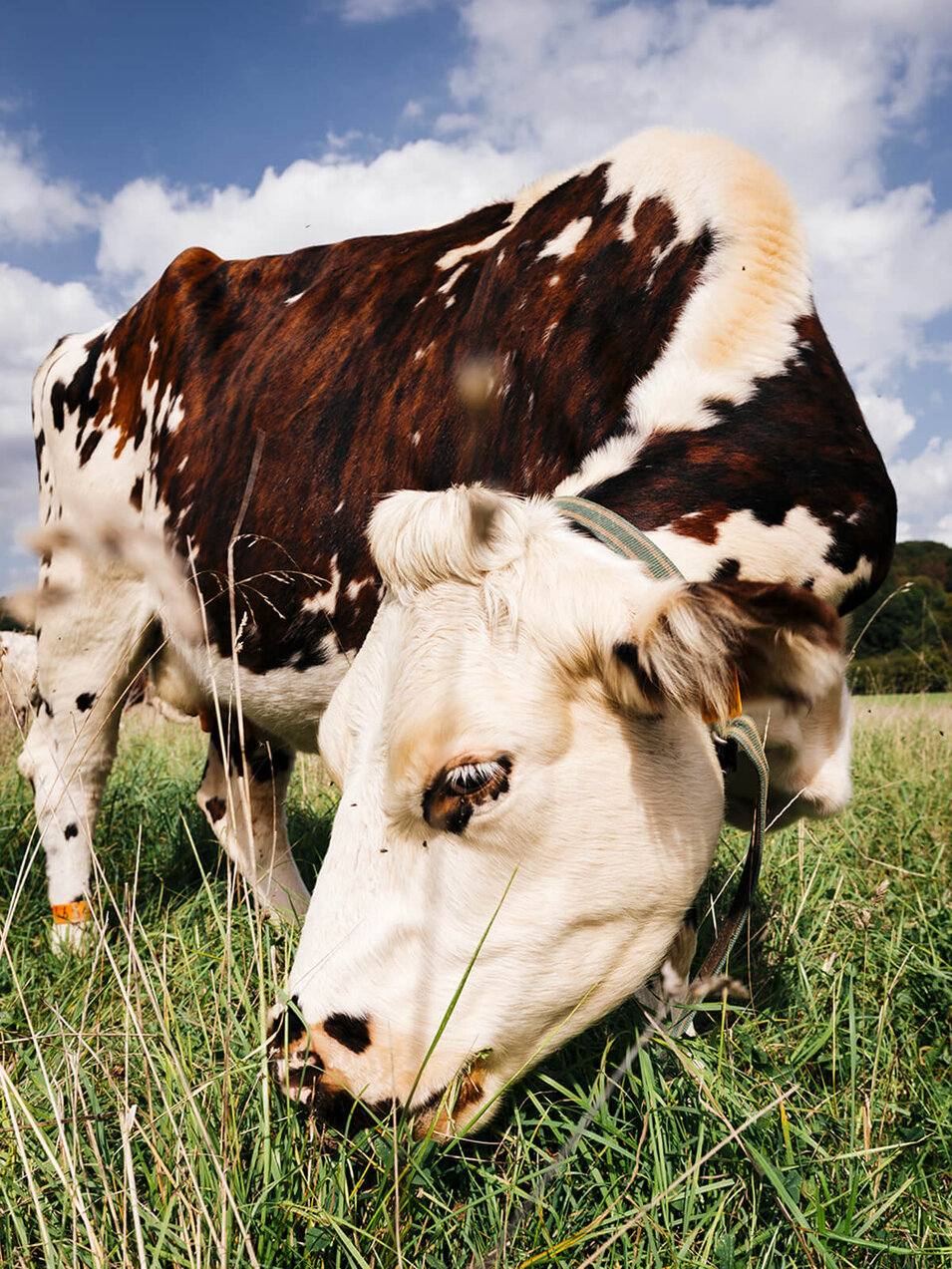
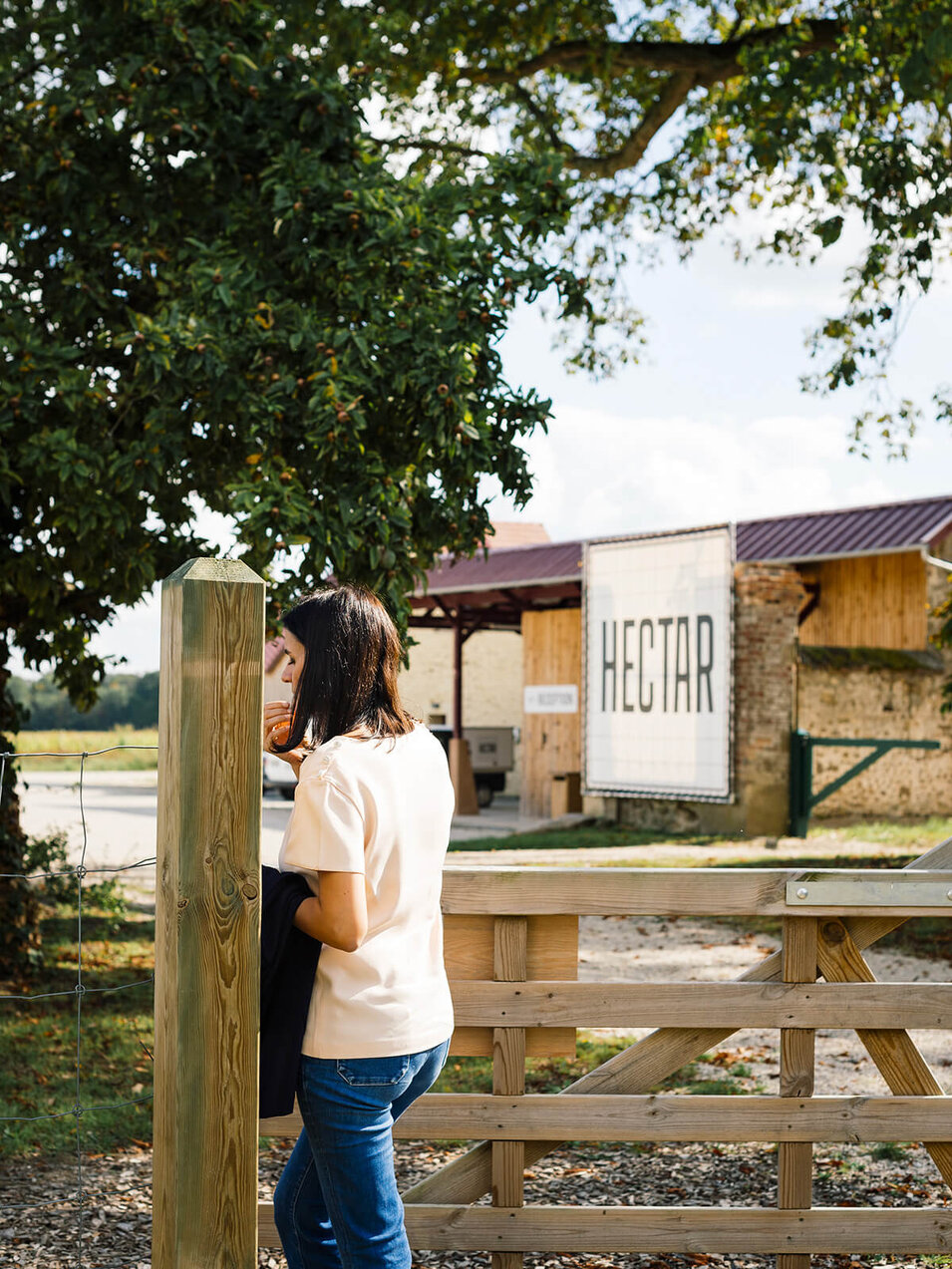
HECTAR aims to develop agricultural soil preservation through a 300 hectare, experimental pilot farm dedicated to regenerative agriculture.
We need to change how we think about farmers, because the profession is becoming hybridised
... Much more than an agricultural business school
HECTAR is a school unlike any other. It is both a place of training and awareness, an accelerator of agricultural and food sector start-ups and a pilot farm to test innovative models. On the training side, HECTAR is aiming both at new entrants who create or take over a farm (70%) and at “old hands” who inherit a family asset. It is not technical training, but an entrepreneurial programme structured in two parts: economic first, creating sustainable business models, then social to help students better organise their working time. “We need to change society’s view of farmers, because the profession is becoming hybridised,” analyses Audrey Bourolleau.
“New generations of farmers are business leaders. They must know how to manage multiple and complex subjects: finding financing for renting or buying their land, choosing their mode of production, processing their products, and so on. They can also choose to do direct sales, agro-tourism or even produce green energy!”
The awareness programme is aimed at two types of audience. Young people (third grade students, apprentice pork butchers/ caterers, future chefs at the Ducasse Cooking School) and businesses, with whom she works to raise their awareness of the need to rethink their models in response to sustainability issues. “Companies are realising that 80% of their carbon emissions are originating from agricultural production, which is far ahead of transport,” underlines Audrey Bourolleau. We help them measure the impact of de-carbonisation on their cost structure”.
Soils at the heart of regenerative agricultural practices
Regenerative or conservation agriculture is based on diversifying crops or putting “plant covers” on the land to protect it after each harvest.
This technique results in a loss of yield for two or three years before the soil regains its original level of productivity. However, doing nothing damages soil asset value. Although it currently represents only 4% of agricultural practices in France, regenerative agriculture is the only practice that guarantees the restoration of our soils over the long term.
HECTAR’s last pillar: innovation with the European agritech start-ups acceleration programme in partnership with the HEC Paris incubator. “Finding funds is difficult in our sector,” laments Audrey Bourolleau. “We support the selected start-ups until their fundraising round and test their innovations on our pilot farm. These may include decision support and planning tools or even instruments for measuring carbon and biodiversity.”
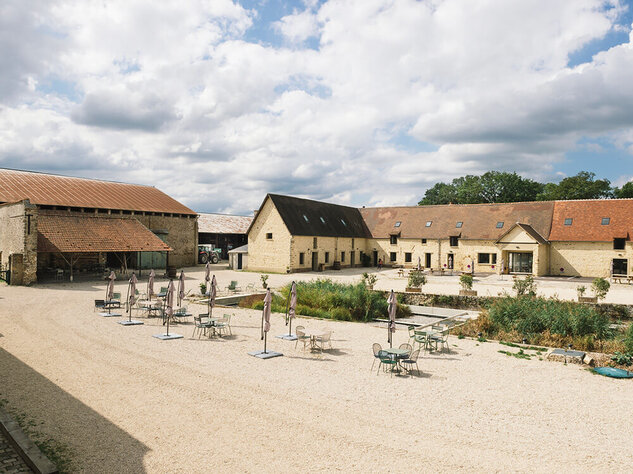
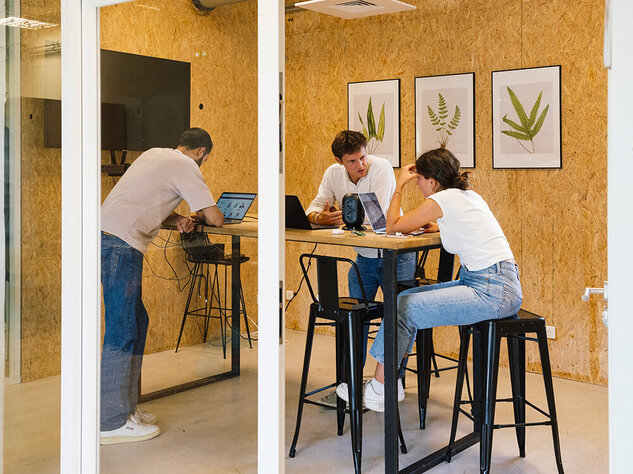
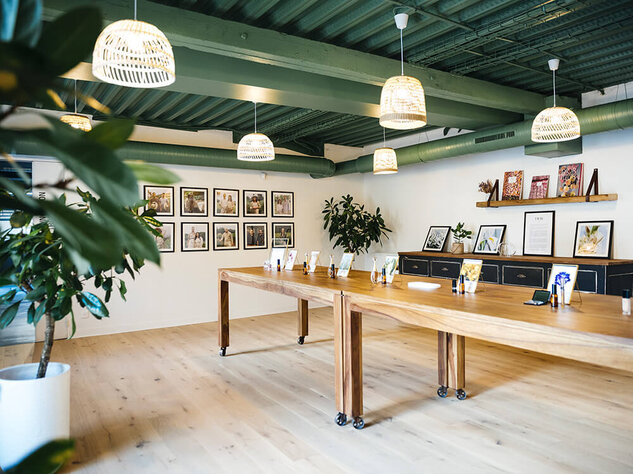
The HECTAR acceleratoroffers a three-month programme to support projects in the Agri-FoodTech sector.
The educational centre offers young people (primary and middle schools) immersion days at HECTAR.
Convincing interim results
Two years after the operational start of HECTAR, Audrey Bourolleau is confident that its programmes have enabled many entrepreneurs to secure their agricultural projects. Role models are emerging, demonstrating that it is possible to succeed provided you define the right plan for your agricultural project. While she is confident about the future of the French agricultural sector, Audrey Bourolleau had to reassess her own convictions: “Two ways of producing our food will need to coexist: agriculture linked to the land and living things, and new modes of production without a direct link to the soil or the cycle of the seasons (precision fermentation, indoor farming). For someone like me, with an innate sensibility for the cycle of the seasons and an appreciation for the land passed down from my grandparents, this shakes up our prior assumptions. But faced with global warming and generational agricultural renewal, it is HECTAR’s role to study all modes of production in a dispassionate manner!”
We want to enable agricultural business leaders to live without being exhausted before the day has even begun.
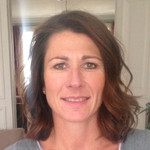
Text
Stéphanie Livingstone-Wallace
A freelance designer-editor for more than 15 years,
Stéphanie Livingstone-Wallace writes multiple communication
media, with the energy transition, transport and logistics,
education and finance and health as her main focus.

Pictures
Manon Riff-Sbrugnera
Manon Riff-Sbrugnera works on press and corporate projects as well as on personal projects. She takes a unique look at her environment and her encounters.
